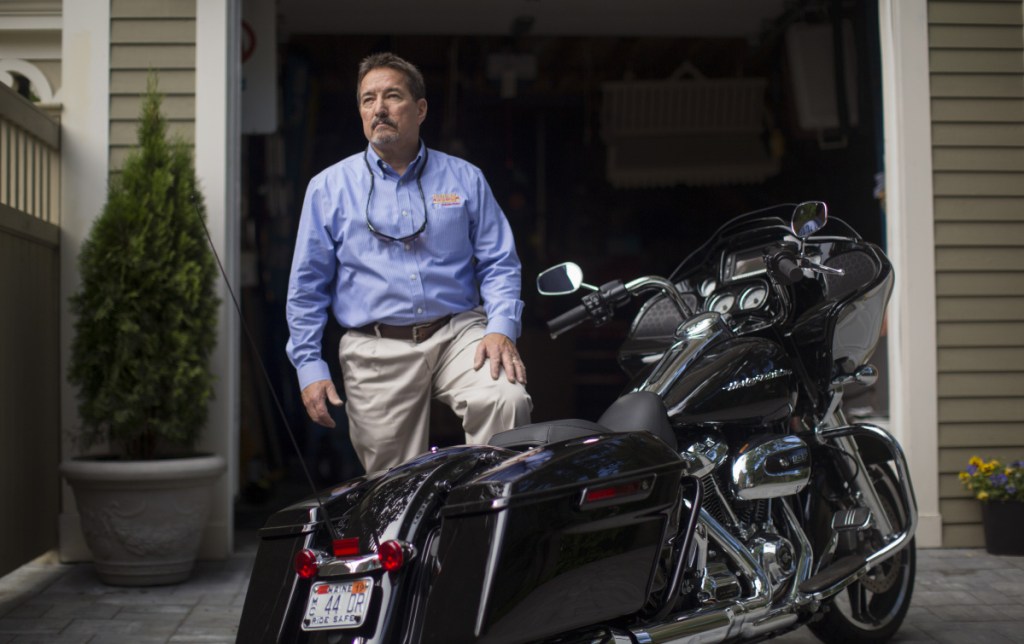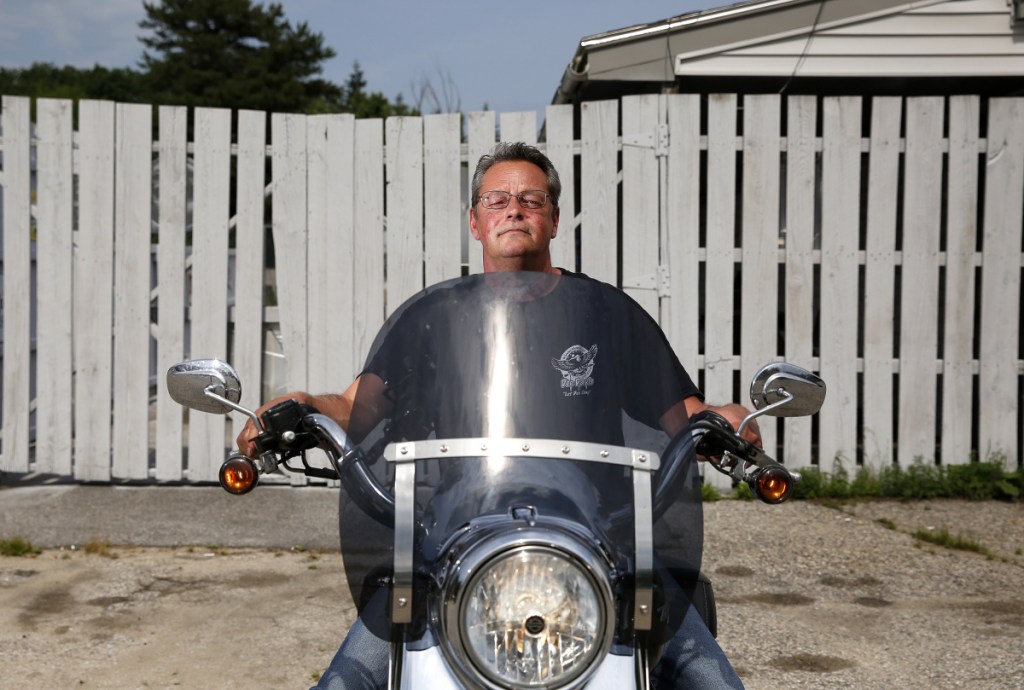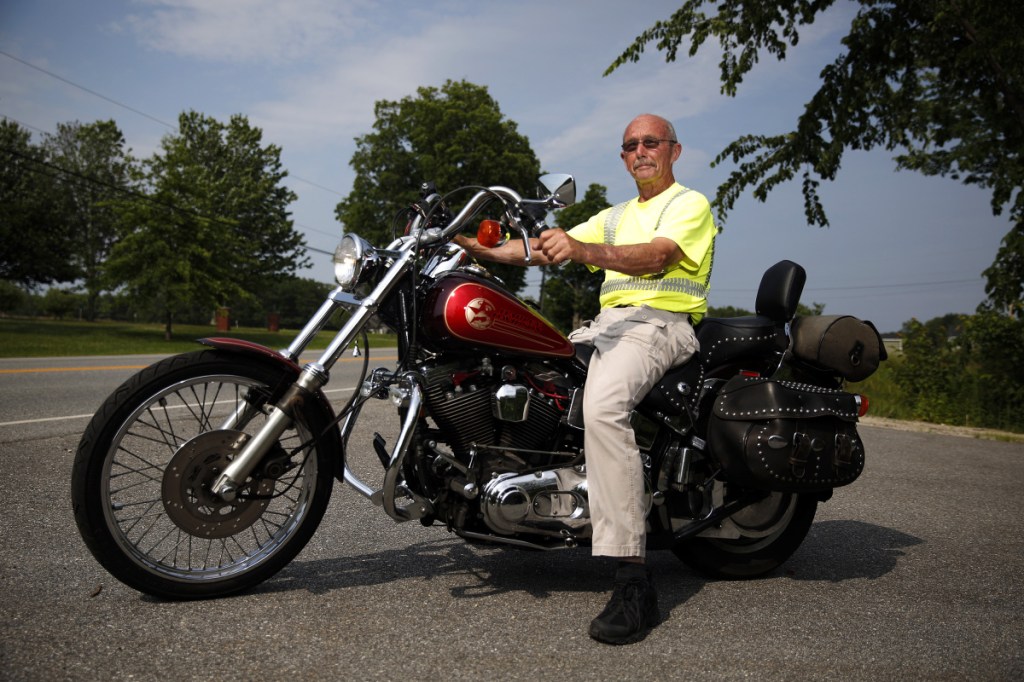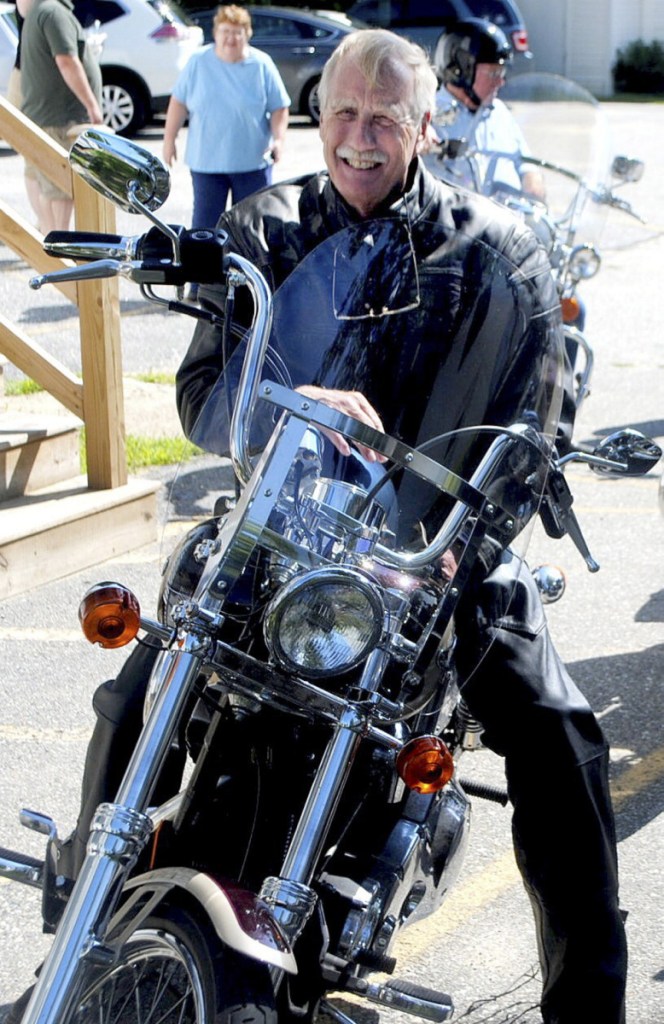Dan Liberty of Windham is like many other Harley-Davidson owners in Maine and beyond: fiercely loyal to the iconic American brand.
He is not, however, among the customers who President Trump says are “very angry” about the company’s decision last week to move some of its motorcycle production overseas in response to the escalating trade war.
“As I understand, it already has factories overseas anyway,” said Liberty, who has ridden motorcycles his whole life and owns a 2011 Harley. “I think as long as bikes that are sold here are made here, people don’t really care.”
All of the motorcycles that Harley, headquartered in Milwaukee, sells in the United States are built here. That won’t change. And, as Liberty pointed out, it has been producing bikes in other countries for other non-U.S. markets.
But Trump, whose base of support embraces his “America First” motto, has muddied the waters by implying that Harley is betraying the U.S. – and him personally – with its recent decision.
“I’ve done so much for you, and then this,” he posted on Twitter. “We won’t forget and neither will your customers.”
The company, though, has said Trump’s decision to impose tariffs on aluminum and steel, which prompted Europe to impose retaliatory tariffs, forced its hand. Harley has said the cost of a U.S.-made bike shipped to Europe would increase by more than $2,000 because of the tariffs.
One of Maine’s most high-profile Harley owners – U.S. Sen. Angus King – said he doesn’t fault the company at all for deciding to move production overseas.
“I think they are acting as a rational business,” King said in an interview. “Their tariffs would price them out of the market.”
King supports improving trade relationships with other countries, but said he hasn’t seen any strategy from the president. He said the retaliatory tariffs, including from the Chinese on Maine’s lobster industry, have been entirely predictable and could result in an economic slowdown.
“We need to go about trying to repair those (trade) agreements in a strategic, thoughtful way, not with a sledgehammer,” he said.
King said he’s troubled that the president is singling out a company like Harley-Davidson. “I’ve never seen anything like that,” he said.
Trump, for his part, kept up the pressure throughout last week, including at a speech Thursday in Wisconsin during which he implored the company to reconsider. “Harley-Davidson, please build those beautiful motorcycles in the USA, please. OK,” the president said, according to The Washington Post. “Don’t get cute with us. Don’t get cute.”
Maine Harley owners like Liberty seem to be able to separate the company’s decision to move production from the president’s rhetoric.
Steve DiMillo, owner of the Portland waterfront restaurant DiMillo’s on the Water, has been a Harley owner for more than 30 years. He said he rode Japanese bikes before he switched.
“It’s the only bike I’ll buy,” he said. “It just feels different than anything else.”
DiMillo said watching the president go after the company bothers him because he doesn’t think it’s productive.
“I think Harley and the president need to get together and sort this out,” he said. “I think it will always be American-made, at least what it sells here, because that’s such a big part of its appeal.”
Gregg Adams, who owns Adams Auto Glass in Portland, has had his 1996 Ultra Classic for 22 years. He said he prefers Harleys, in large part because they are American-made.
“It’s how I was brought up,” he said.
But, like others, he doesn’t think Harley’s decision to move some production overseas is a huge deal.
As for Trump, Adams said he preferred to keep his opinion to himself as a small-business owner whose customers may cover the political spectrum. He did say, though, that the perception that Harley owners are all Trump supporters isn’t true.
Paul Garland of Buxton is one of those who is. He said he supports Trump and his policies on trade.
“I love our president,” he said. “This is all going to just blow away. It’s all going to be good. Our president knows what he’s doing.”
Staff Photographer Ben McCanna contributed to this report.
Copy the Story Link
Send questions/comments to the editors.








Success. Please wait for the page to reload. If the page does not reload within 5 seconds, please refresh the page.
Enter your email and password to access comments.
Hi, to comment on stories you must . This profile is in addition to your subscription and website login.
Already have a commenting profile? .
Invalid username/password.
Please check your email to confirm and complete your registration.
Only subscribers are eligible to post comments. Please subscribe or login first for digital access. Here’s why.
Use the form below to reset your password. When you've submitted your account email, we will send an email with a reset code.